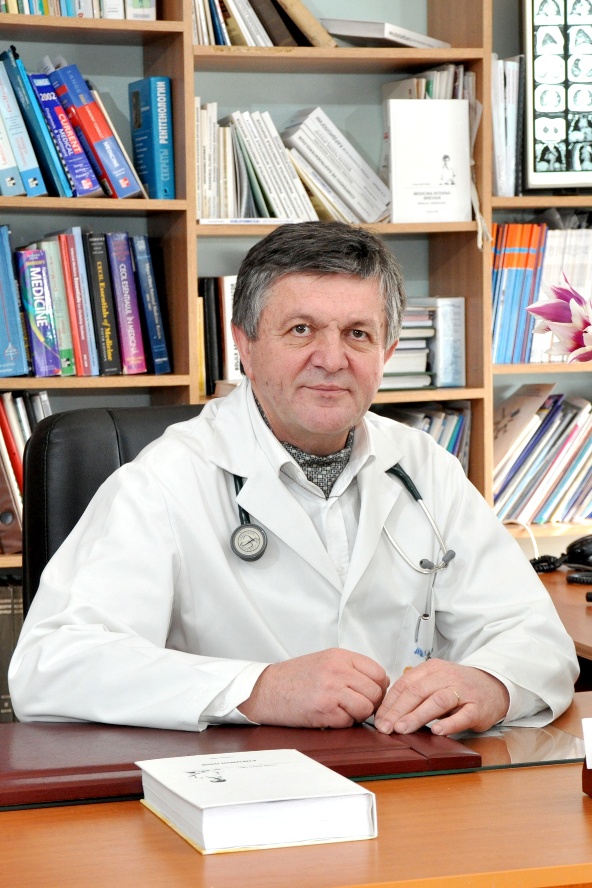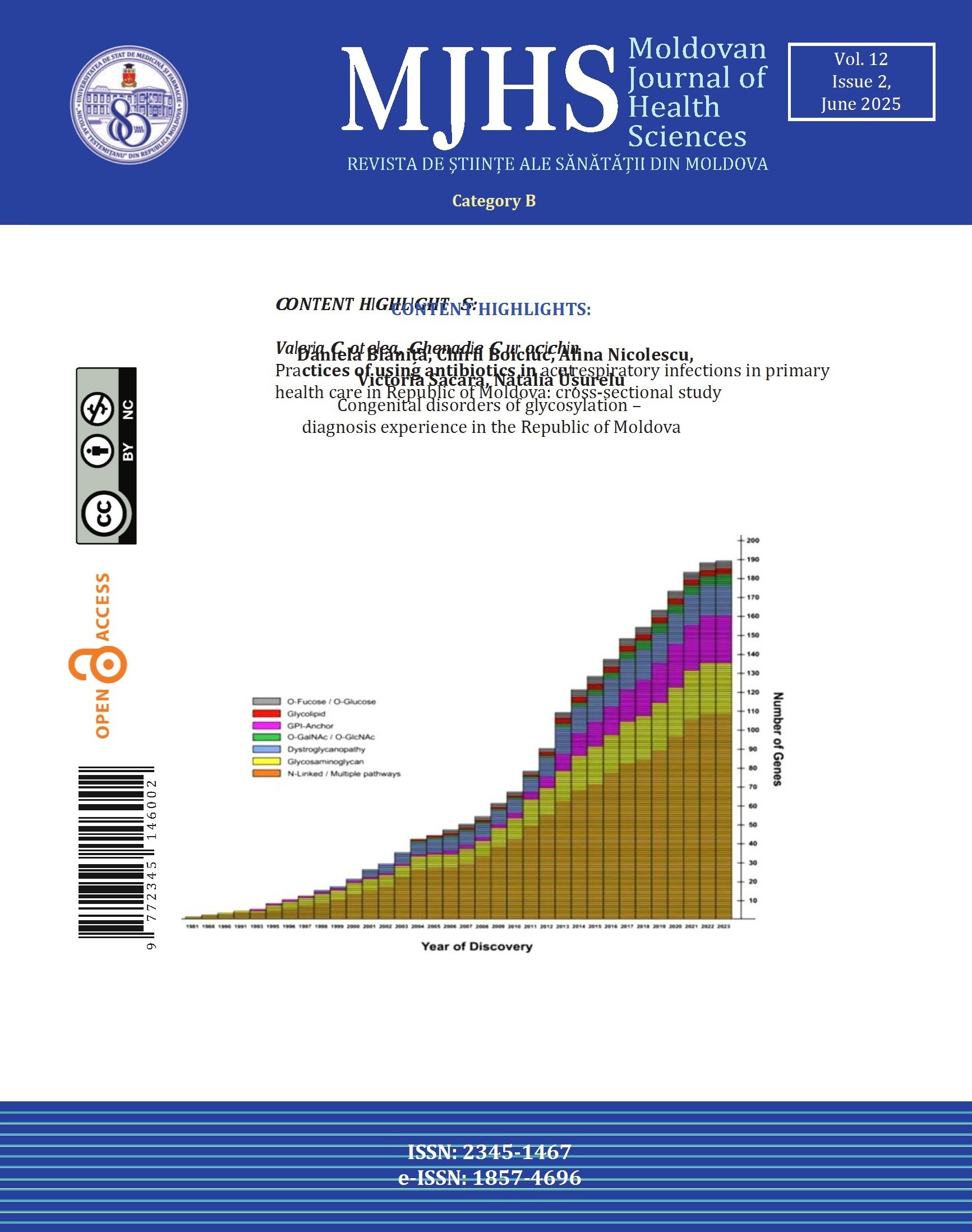 Upon reaching the distinguished age of 70, Professor Victor Botnaru remains an emblematic figure in the field of medicine in the Republic of Moldova. A Habilitated Doctor in Medical Sciences, Professor Botnaru has devoted his entire life to research, education, and the advancement of medical practice, contributing significantly to the progress of pulmonology and internal medicine.
Upon reaching the distinguished age of 70, Professor Victor Botnaru remains an emblematic figure in the field of medicine in the Republic of Moldova. A Habilitated Doctor in Medical Sciences, Professor Botnaru has devoted his entire life to research, education, and the advancement of medical practice, contributing significantly to the progress of pulmonology and internal medicine.
Born on July 6, 1955, in Cinișeuți, Rezina, Professor Botnaru followed an impressive academic path. He earned his PhD in Medical Sciences in 1980 at the Cardiology Center in Moscow, specializing in cardiology and nuclear medicine. In 1991, he defended his habilitation thesis, further establishing his status as an expert in the medical community. Since 1996, he has held the position of Head of the Department of Internal Medicine at the “Nicolae Testemițanu” State University of Medicine and Pharmacy from the Republic of Moldova, which was later reorganized into the Discipline of Pulmonology and Allergology.
Professor Botnaru is not only a remarkable scientist but also a dedicated mentor and educator. Throughout his teaching career, he has trained thousands of students, who now work in various branches of medicine both in Moldova and abroad. Through his innovative teaching methods and motivational approach, he has succeeded in imparting not only theoretical knowledge but also core values such as ethics, responsibility, and devotion to the profession.
As the author and co-author of over 420 scientific works, Professor Botnaru has had a profound impact on the development of generations of students and medical specialists. His medical textbook, including Pulmonology, Imaging in Commented Clinical Cases, and Elements of Immunology, are fundamental references for the academic community and practitioners alike. His works have been recognized both nationally and internationally, contributing to the continuous development of knowledge in the medical field. In addition, he has participated in the drafting of important medical guidelines and protocols that are used as standards in current medical treatments.
As a doctoral advisor, Professor Botnaru has supervised ten successfully defended doctoral theses and three habilitation theses, supporting the formation of prestigious researchers and specialists. Under his guidance, doctoral students have tackled innovative topics, making valuable contributions to the diagnosis and treatment of respiratory diseases. He has also contributed to the organization and support of national and international scientific conferences, facilitating the exchange of experience among specialists from various medical fields.
As an exceptional physician, Professor Botnaru has demonstrated unwavering dedication to his patients and an innovative approach to medical practice. His contributions to modernizing diagnostic and treatment methods in pulmonology have significantly improved the quality of healthcare in Moldova. He has also been involved in multiple international research projects, such as The European Bronchiectasis Registry and the Global Consortium for Drug-resistant Tuberculosis Diagnosis. Through these collaborations, he has brought advanced diagnostic and treatment methods to Moldova, helping raise the standards of the national medical system.
In recognition of his outstanding merits, Professor Victor Botnaru was awarded the State Prize of the Republic of Moldova in the field of science, technology, and production (1994) and the honorary title of "Merited Person of the Republic of Moldova" (2015). These distinctions underscore his remarkable contribution to the development of medicine and medical education. His expertise continues to be sought in prestigious commissions and working groups.
Beyond his exceptional professional activity, Professor Botnaru is a man of integrity, a respected colleague, and a devoted friend. Those who know him describe him as an open person, always willing to help, offer advice, or provide guidance. His passion for medicine is matched only by his devotion to his family and students.
On this anniversary, the medical and academic community extends to Professor Victor Botnaru the warmest congratulations, gratitude, and wishes for health, prosperity, and continued success in his prodigious career. May he continue to be an example and a source of inspiration.
Happy birthday, Professor!
Emil Ceban, rector of the Nicolae Testemițanu SUMPh
Dr. hab. med. sciences, university professor, corresponding member of the ASM

